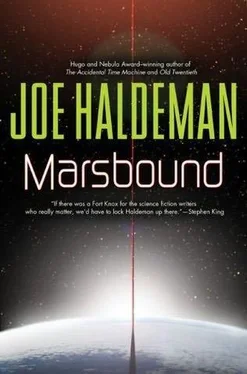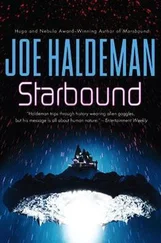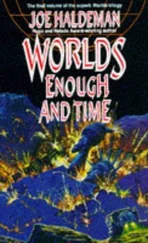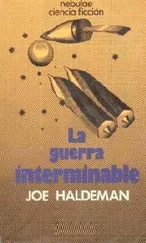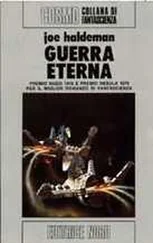Mother was blinking away tears, unable to touch her face behind the helmet, crying with happiness. The dream of her lifetime. I hugged her, which felt strange, both of us swaddled in insulation.
Our helmets clicked together and for a moment I heard her muffled laugh.
While Paul went back to get Card, I just looked around. I’d spent hours there in virtual, of course, but that was fake. This was hard-edged and strange, even fearsome in a way. A desert with rocks. Yellow sky of air so thin it would kill you in a breath.
When Card got to the ground, he jumped higher than I had. Paul grabbed him by the arm and walked him over.
The air lock held five people. Paul and the two strangers gestured for us to go in when the door opened. It closed automatically behind us, and a red light throbbed for about a minute. I could hear the muffled clicking of a pump. Then a green light, and the inside door sighed open. “Home again,” Paul said.
We stepped into the greenhouse, a dense couple of acres of grain and vegetables and dwarf fruit trees. The air was humid and smelled of dirt and blossoms. A woman in shorts and a tee shirt, cut off under her breasts, motioned for us to take off our helmets.
She introduced herself as Emily. “I keep track of the air lock and suits,” she said. “Follow me, and we’ll get you square.”
Feeling overdressed, we clanked down a metal spiral stair to a room full of shelves and boxes, the walls unpainted rock. One block of metal shelves was obviously for our crew, names written on bright new tape under shelves that held folded Mars suits and the titanium suitcases.
“Just come on through to the mess hall after you’re dressed,” she said. “Place isn’t big enough to get lost. Not yet.” They planned to more than double the underground living area while we were here.
I helped Mother out of her suit, and she helped me. I needed a shower and some clean clothes. My jumpsuit was wrinkled and damp with old sweat, fear sweat from the landing. I didn’t smell like a petunia myself. But we were all in the same boat.
Paul and the two other men in Mars suits were rattling down the stairs as we headed for the mess hall. The top half of the corridor was smooth plastic that radiated uniform dim light, like the tubes that had linked the Space Elevator to the Hilton and the John Carter . The bottom half was numbered storage drawers.
I knew what to expect of the mess hall and the other rooms; the colony was a series of inflated half cylinders inside a large irregular tunnel, a natural pipe through an ancient lava flow. Someday the whole thing would be closed off and filled with air like the part we’d just left, but for the time being everyone lived and worked in the reinforced balloons.
We walked through a medical facility, bigger than anything we’d seen since the Hilton. No people, just a kind of medicated smell. Forty or fifty feet wide, it all seemed pretty huge after living in a spaceship. I don’t suppose it would be that imposing if you went there directly from a town or a city on Earth.
The murmur of voices was pretty loud before we got to the mess hall. It sounded like a cocktail party, though the only thing to drink was water, and you don’t dare spill a drop.
The mess hall was big enough for about two dozen people to eat at once, and now there were a hundred or so, sitting on the tables as well as the chairs, milling around saying hello. We twenty-six were the first new faces they’d seen in a year and a half—about one Martian year, one “are,” pronounced air-ee. I’d better start thinking that way.
The room had two large false windows, like the ones on the ship, looking out onto the desert. I assumed they were real-time. Nothing was moving, but then all the multicellular life on the planet was presumably right here.
You could see our lander sitting at the end of a pair of mile-long plowed grooves. I wondered whether Paul had cut it too close, stopping a couple of hundred feet away. He’d said the landing was mostly automatic, but I didn’t see him let go of the joystick.
I saw Oz immediately and threaded my way over to him. We shook hands, then hugged. He was a little bit shorter than me, which was a surprise. He held me by both shoulders and looked at me with a bright smile, and then looked around the room. “It’s pretty strange, isn’t it? All these people.”
Seventy-five new faces after seeing the same two dozen for months. “They look like a bunch of Martians.”
He laughed. “Was the landing rough?”
“Pretty awful. But Paul seemed in control.”
“He was my pilot, too. Good old ‘Crash’ Collins.”
“ ‘Crash’?”
“Ask him about it someday.”
An Asian woman a little taller than Oz came over, and he put his arm around her waist. “Josie, this is Carmen.”
We shook hands. “I’ve seen your picture,” she said. Josie Tang, Oz’s lover. “Welcome to our humble planet.”
I tapped my foot on the metal plate. “Nice to have real gravity.”
“The same no matter where you go,” Oz said. “I’ll give you a tour after the formalities.”
When Paul and the other two came into the room, an older woman started tapping on a glass with a spoon. Like many of them, men and women, she was wearing a belted robe made of some filmy material. She was pale and bony.
“Welcome to Mars. Of course I’ve spoken with most of you. I’m Dargo Solingen, current general administrator.
“The first couple of sols”—Martian days—“you are here, just settle in and get used to your new home. Explore and ask questions. We’ve assigned temporary living and working spaces to everyone, a compromise between the wish list you sent a couple of weeks ago and… reality.” She shrugged. “It will be a little tight until the new modules are in place. We will start on that as soon as the ship is unloaded.”
She almost smiled, though it looked like she didn’t have much practice with it. “It is strange to see children. This will be an interesting social experiment.”
“One you don’t quite approve of?” Dr. Jefferson said.
“You probably know that I don’t. But I was not consulted.”
“Dr. Solingen,” a woman behind her said in a tone of warning.
“I guess none of you were,” he said. “It was an Earth decision, the Corporation.”
“That’s right,” Solingen said. “This is an outpost, not a colony. They don’t have families on Moonbase or even Antarctica.”
Oz cleared his throat. “We were polled. Most of us were very much in favor.” And most of them did call it “the colony,” rather than Mars Base One.
The woman who had cautioned Solingen continued. “A hundred percent of the permanent party. Those of us who are not returning to Earth.” She was either pregnant or the only fat person in the room. Looking more carefully, I saw one other woman who appeared to be pregnant.
You’d think that would have been on the news. Maybe it was, and I missed it, not likely. Mother and I exchanged significant glances. Something was going on.
(It turned out to be nothing more mysterious than a desire for privacy on the women’s part, and everybody’s desire to keep Earth out of their hair. When the first child was born, the Earth press would be all over them. Until then, there was no need for anyone to know the blessed event was nigh. So they asked that we not mention the pregnancies when writing or talking to home.)
Solingen went on to talk about work and living schedules. For those of us in school, study schedules would continue as on the John Carter , and we’d be assigned light duties “appropriate to our abilities.” Probably fetch-and-carry or galley slave, as we called kitchen work on ship.
Читать дальше
